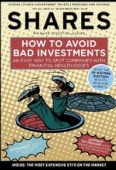The markets are digesting the prospect of political gridlock in Washington as, in a widely predicted outcome, the Democrats secured the House of Representatives while the Republicans held on to the Senate.
Data from Bank of America Merrill Lynch shows historically the best S&P 500 returns under a Republican president were achieved with a split Congress. This scenario generated annual returns of 12%.
However, there are reasons to believe the trend may not hold true this time. Given the divisive nature of US politics at present the Democrats are unlikely to support any Trump administration initiatives.
This limits the prospect of further fiscal stimulus for the US economy, which, in turn, could reduce the pressure to increase interest rates and put the US dollar on the back foot.
This would be positive for emerging market countries with lots of dollar-denominated debt. The impact on corporate earnings may also make US stocks less attractive than their counterparts elsewhere after a period of divergent performance.
Trump has a freer hand with foreign policy, so anyone hoping the political shift will lead to a softer tone with China on trade, a key market concern, is likely to be disappointed. (TS)
‹ Previous2018-11-08Next ›

 magazine
magazine








